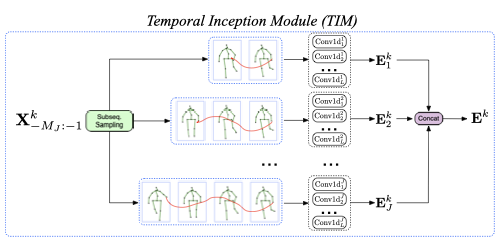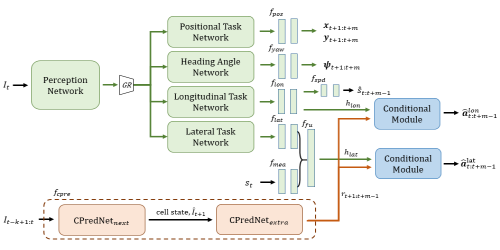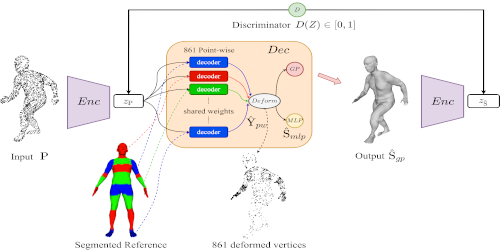Adversarial Refinement Network for Human Motion Prediction
Xianjin Chao (The City University of Hong Kong)*, Yanrui Bin (HUST), Wenqing Chu (Tencent), Xuan Cao (Tencent), Yanhao Ge (Tencent), Chengjie Wang (Tencent), Jilin Li (Tencent), Feiyue Huang (Tencent), Howard Leung (City University of Hong Kong)
Keywords: Motion and Tracking
Abstract:
Human motion prediction aims to predict future 3D skeletal sequences by giving a limited human motion as inputs. Two popular methods, recurrent neural networks and feed-forward deep networks, are able to predict rough motion trend, but motion details such as limb movement may be lost. To predict more accurate future human motion, we propose an Adversarial Refinement Network (ARNet) following a simple yet effective coarse-to-fine mechanism with novel adversarial error augmentation. Specifically, we take both the historical motion sequences and coarse prediction as input of our cascaded refinement network to predict refined human motion and strengthen the refinement network with adversarial error augmentation. During training, we deliberately introduce the error distribution by learning through the adversarial mechanism among different subjects. In testing, our cascaded refinement network alleviates the prediction error from the coarse predictor resulting in accurate prediction robustly. This adversarial error augmentation provides rich error cases as input to our refinement network, leading to better generalization performance on the testing dataset. We conduct extensive experiments on three standard benchmark datasets and show that our proposed ARNet outperforms other state-of-the-art methods, especially on challenging aperiodic actions in both short-term and long-term predictions.
SlidesLive
Similar Papers
Motion Prediction Using Temporal Inception Module
Tim Lebailly (EPFL)*, Sena Kiciroglu (EPFL (École polytechnique fédérale de Lausanne)), Mathieu Salzmann (EPFL), Pascal Fua (EPFL, Switzerland), Wei Wang (EPFL)

Multi-task Learning with Future States for Vision-based Autonomous Driving
Inhan Kim (POSTECH)*, Hyemin Lee (POSTECH), Joonyeong Lee (POSTECH), Eunseop Lee (POSTECH), Daijin Kim (Pohang University of Science and Technology)

Reconstructing Human Body Mesh from Point Clouds by Adversarial GP Network
Boyao Zhou (Inria)*, Jean-Sebastien Franco (INRIA), Federica Bogo (Microsoft), Bugra Tekin (Microsoft), Edmond Boyer (Inria)
